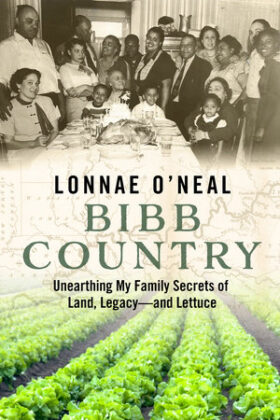Bibb Country
by: Lonnae O'Neal
Available Formats
Bibb Country follows Lonnae O’Neal back in time as she pieces together generations of her family history against the sweep of American history, unearthing hidden triumphs, traumas, and a specialty strain of lettuce along the way.
Five years ago, Lonnae O’Neal grabbed some seeds for her backyard garden, including seeds for Bibb lettuce. She had no idea how deeply she’d wind up digging, or how far she would travel.
Lonnae’s fourth great-grandmother, Keziah, was enslaved by the Kentucky Bibb family, including John Bigger Bibb, who developed the Bibb lettuce strain, which remains a culinary darling more than 150 years later. John Bigger Bibb was executor of his father Major Richard Bibb’s will, which freed Keziah and dozens of other Black Bibbs decades before the Civil War, leaving them with a powerful, complicated legacy.
Major Bibb is widely believed to have fathered one of Keziah’s granddaughters. Another white Bibb, or Bibb-adjacent enslaver, whose identity is shrouded in mystery, fathered Keziah’s grandson, who is the beginning of the line for Lonnae.
Through historical records, genealogical science, oral histories, and interviews, Lonnae brings Bibb family stories (both Black and white) to life, and traces the legacy of the Black Bibbs’ migration from Kentucky to Southern Illinois, and beyond.
A mix of memoir, food history, and cultural critique, Bibb Country explores what it means to be descended, through enslavement, from a family whose wealth and power helped shape a nation, and confronts the history that echoes through one family’s generations, and, by extension, every generation of America.

